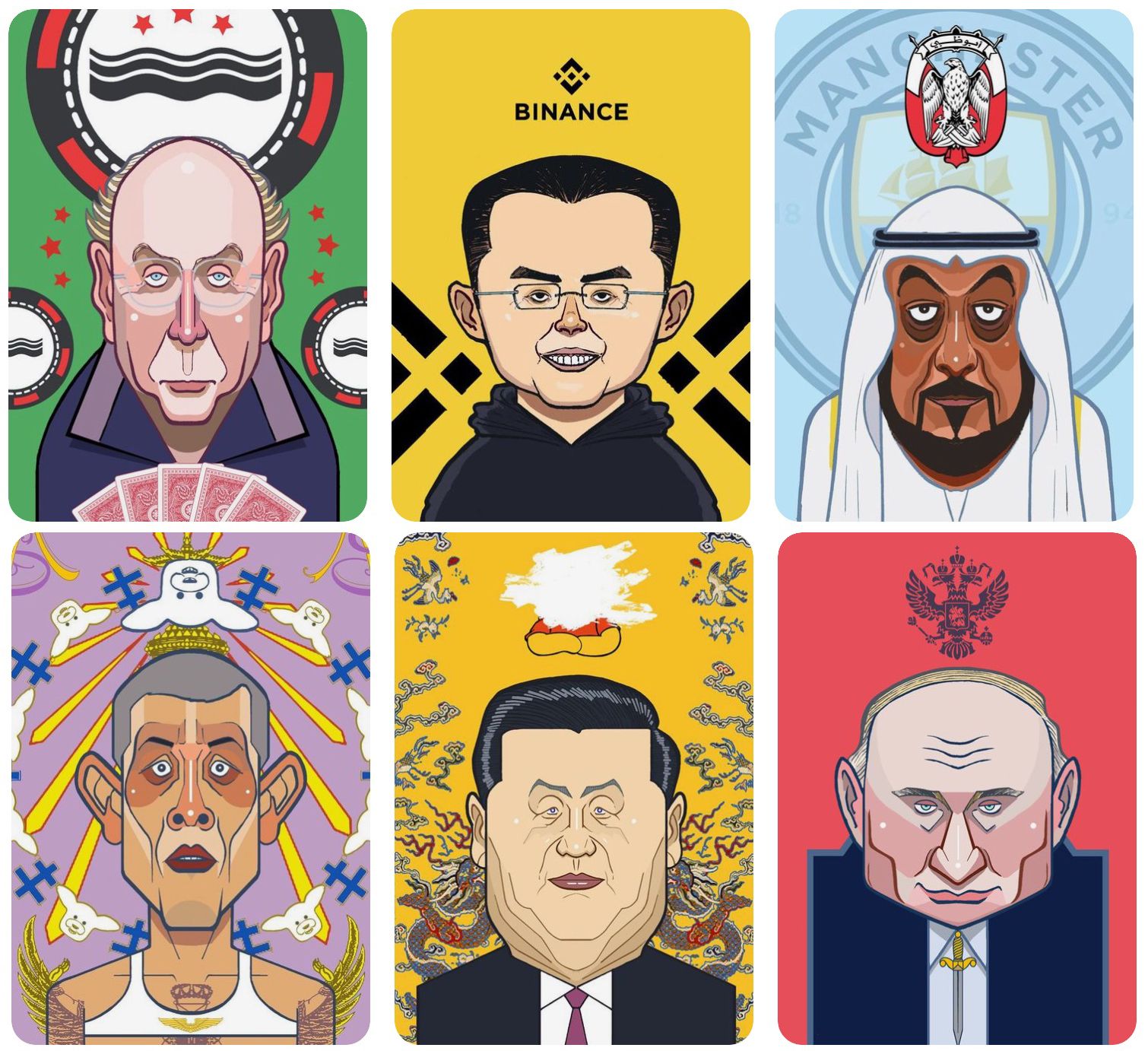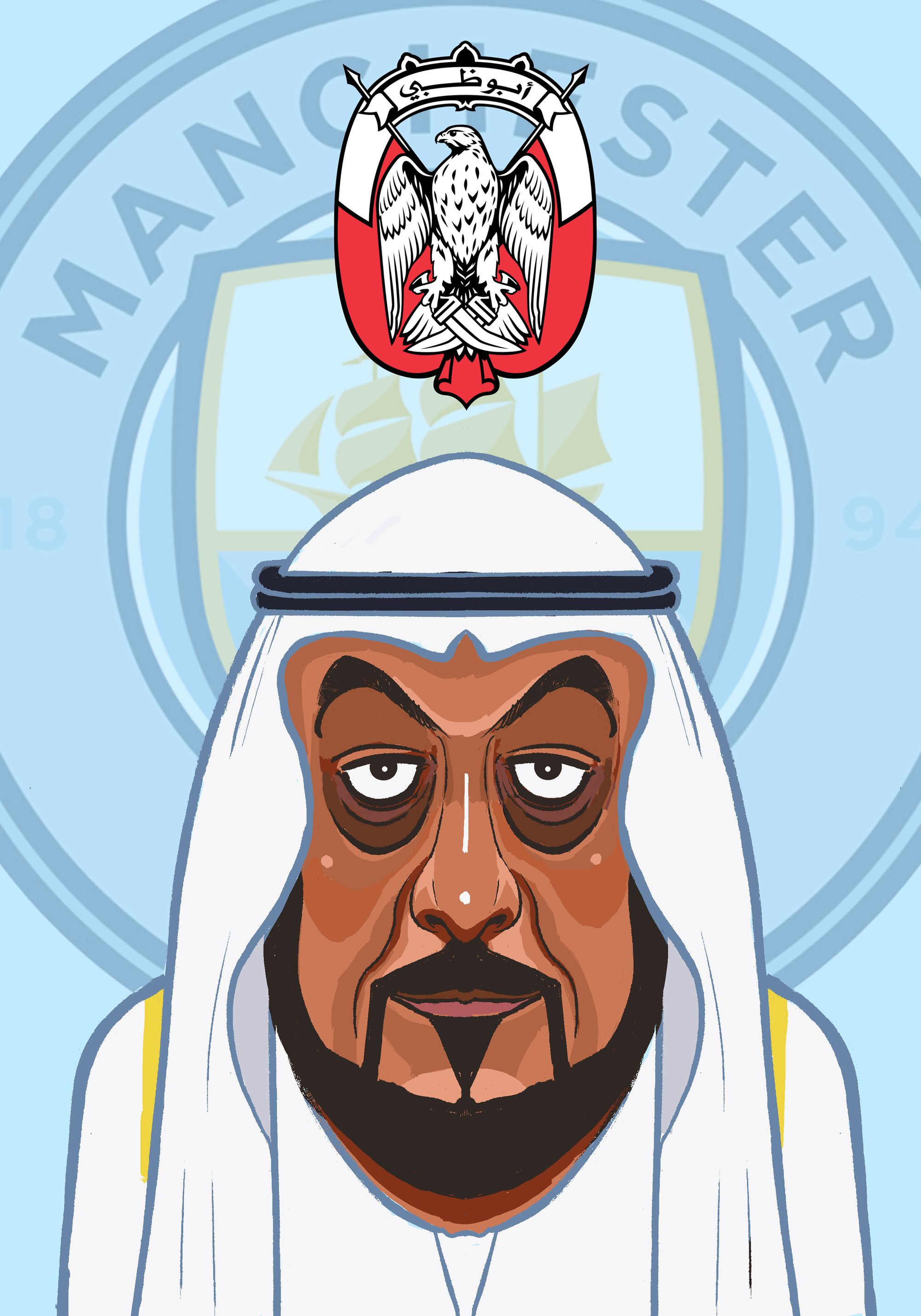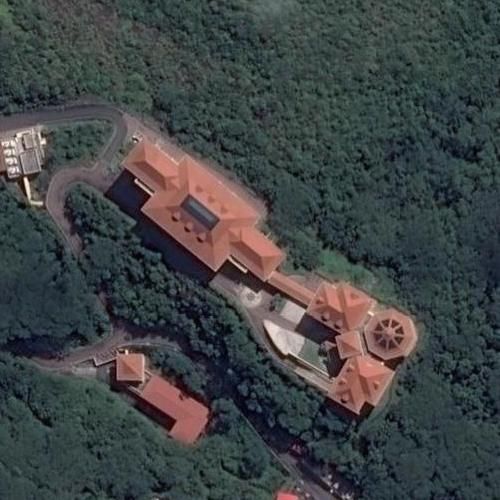
Imagine a distant island part of a crescent-shaped archipelago. Atop a hill there sits an enormous pink palace with dozens of rooms, gardens and a heliport. Everyday the household staff wake up to maintain the property, cleaning rooms and dusting off the Louis XIV furniture. The hedges are trimmed. Seasons
Imagine a distant island part of a crescent-shaped archipelago. Atop a hill there sits an enormous pink palace with dozens of rooms, gardens and a heliport. Everyday the household staff wake up to maintain the property, cleaning rooms and dusting off the Louis XIV furniture. The hedges are trimmed. Seasons pass and every year the same routines continue while they wait for the owner to arrive. Maybe for this particular palace, a butler and a maid get married, have children who grow into adults, while they get old and die without the sheikh ever arriving. They spent their life waiting for their princely host to visit his gorgeous palace, but he never does. So vast are his holdings and homes that this one slips from view, forgotten among the horde of treasure.
That's what I think of when I imagine the unbelievable wealth of Gulf royal families. And yet, when we think of the richest people in the world, the only place to look is the Forbes Billionaire List, which they say contains the world's "richest" people. Read the fine print and you'll see why the use of a superlative in the description is inappropriate. First published in 1987, their list is comprised only of people with publicly known wealth. The 2021 list identifies Jeff Bezos ($177 billion, Amazon) and Elon Musk ($151 billion, Tesla) as the top two richest people. Of course, you can't blame them for limiting their criteria. There's no way to objectively create a true list of the world's actually richest people (but as you'll see below, we're going to try!).
The Gulf royal families are a perfect example of the shortcomings of the public wealth criteria. They haven’t and will never disclose their net worth. Why should they? Where is the boundary between what's their wealth and their country's? Do citizens of Saudi Arabia or Kuwait actually have literal a stake in that wealth? I'd argue they don't. They are rewarded at the discretion of the royals.
Introduction aside, let us announce to you our own initiative to discover the identifies of the world's richest people. At Whale Hunting, we're going to spend the next few months identifying candidates and explaining our thinking for why they might be a contender for the terrifying and powerful position as the actual wealthiest person on earth.
And we want help from everyone out there: OSINT researchers, investigative journalists, concierge staff to the super-rich, yacht captains, bankers and anyone who loves a challenging dig. We're going "WHALE HUNTING," which in this case means identifying those hidden gazillionaires who actually make the world go round. No country or topic is off limits. We're ready to go anywhere.
Why? The reason goes to a core belief here at Project Brazen. Money matters. It's the closest thing to liquid power. Following its flows is the best tool journalists have to understand what's really going on out there. No surprise that there's a global industry trying to route money through complex arrays of shell companies and trusts. Secrecy Inc. is dedicated to preserving that power and shielding the rest of us from understanding who has it and how they're wielding it.
In a way, we don't need to worry too much about Jeff Bezos. He's out in the spotlight and every move he makes -- every dollar he spends -- has the potential to be scrutinized. The people we should be worried about might fly completely under the radar or simply exist in a world where nothing they do is accountable.
My friend Jason Sharman, author of the brilliant Despot's Guide to Wealth Management, says hidden billions are also important for understanding just how bad inequality is in the world. If it's already shockingly high when you only count publicly-visible wealth, it's many times worse when you count the secret wealth, too.
"Rich people are much richer than they look," he said. What's more, it's a measure of who's potentially pulling the strings in politics and policy.
Whale Hunting is FREE if you subscribe. If you want to support what we're doing please feel free to opt for the paid subscription.
Now, for our first candidate. He's a 73-year-old figure-head of a tiny, but rich nation. By the mechanisms of the Royal Family he technically leads, he theoretically controls the outcome of revenue from the future sale of some 100 billion barrels of oil. In 2014, he suffered a serious stroke and has been almost entirely out of the public sphere.
He's Khalifa bin Zayed al Nahyan, the president of the United Arab Emirates. The country is run by his brother Mohammed bin Zayed (better known as M.B.Z.), but he technically holds the top position. A lot about him is for show. When Dubai needed a bailout from Abu Dhabi during the financial crisis, one of the ways it paid its debt was renaming the Burj Dubai (tallest building in the world) as the Burj Khalifa.
What makes Khalifa an interesting candidate for our rich list is a particularly revealing series of lawsuits in the U.K. giving a glimpse of his real estate holdings there. Sometimes legal disputes are the best way of understanding flows of money because they provide a snapshot of some slice of the whole apparatus.

I personally doubt Khalifa even has a firm grasp of his own wealth, so far-reaching are his holdings. In a sense, he's the person I'm imagining when I think of that network of mansions, palaces and high-rise apartments that's so expansive the household staff of one never even get to meet the owner. It's not outlandish at all.
Check out his Seychelles palace on Google Maps. Here's an article about it.

Back in the UK, he imported thousands of gallons of Evian water from France for his £60 million pound Berkshire 18th-century mansion, apparently not believing tap water was acceptable for any use in the house whatsoever. The Times wrote that it wasn't clear he ever occupied the home except for several short visits.
The Guardian did the best job of summarizing the Khalifa-related lawsuits, combining it with their own investigations and material leaked in the Panama Papers. The newspaper estimated his UK property portfolio was worth about £5.5 billion ($7.46 billion). It said that in 2005 alone, entities connected to him spent £1 billion on real estate.
The lawsuits (between Khalifa's entities and a property management company called Lancer) also reveal a fascinating development in the control of that wealth. The Sarawak Report and The Guardian reported that a special committee chaired by his half-brother Sheikh Mansour bin Zayed (you'll know him from the Manchester City acquisition the 1MDB scandal) took control of those assets. More on this below.
From my time in the Gulf, I came to understand that the way royal families like the Al Nahyans of Abu Dhabi amass wealth can be broken into different categories. First, there's oil revenue. A source familiar with the Abu Dhabi set-up told me that in the early days this was where all the money came from. The Al Nahyan family takes a large percentage of oil profits (I'm told it's 10%), which is routed into a private bank within an Abu Dhabi bank (First Gulf Bank) and distributed to family members according to a closely-held formula. Titular heads like Khalifa get a huge percentage while more distant relatives might be getting tens of thousands of dollars a month.
An even bigger way to cash-out is land. All the land and surrounding islands of Abu Dhabi were owned outright by the Al Nahyan royal family at the time of the patriarch Zayed's death. His 19 sons divided that land among themselves and set about developing it or monetizing it in different ways over the years. In some cases, they sold the land to government real estate companies; in other cases, they developed the land themselves using loans from state-owned banks and sold off apartments or offices to people. If the project doesn't work out, it's the banks left with the debt and it often doesn't get paid down. This is where multi-billion payments could be facilitated in relatively short order.
Abu Dhabi royals – like those in many Gulf countries – have other clever ways of getting richer. Mansour bin Zayed famously arranged a deal where a sovereign wealth fund he controlled (International Petroleum Investment Company, of 1MDB fame) provided money to Barclays bank during the financial crisis. As part of the deal, Mansour personally received free warrants that were worth billions of dollars. In other words, he risked Abu Dhabi sovereign wealth and received part of the profits as personal compensation.
Several high-level sources of mine estimates that Khalifa bin Zayed and his son, Sultan, have a paper wealth of some $50 billion, of which the London real estate holdings are an important part. This includes massive stock holdings, property across the globe, as well as a panoply of private investments and stakes in businesses. Dozens of people in Abu Dhabi and abroad work full-time on managing this wealth.
Unfortunately, that puts him quite far away from being the richest person on earth. Our first hypothesis is a miss.
Follow the Brazen Rich List chart as it grows here. (We're using Skiff, a new end-to-end encrypted workspace – pretty cool.)
Name | Estimated Wealth | Category |
Khalifa bin Zayed al Nahyan | $50 billion* | Royal |
The UAE is a great example of a place with extraordinary financial resources as well as global strategic motives. The truckloads of Evian water are cringe-worthy excesses, but more worrying has been the Al Nahyan family's history of using those resources to influence politics and world events. Whether it's trying to be a kingmaker in Libya or getting a Trump financier to allegedly illegally lobby Donald Trump, the UAE has shown it considers money to be the core component of its arsenal.
The obviously most powerful person in Abu Dhabi is the Crown Prince, who is technically second-in-command to Khalifa. His wealth might be harder to comprehend. His powers in Abu Dhabi are so vast and unchecked that he could simply rally any money he might ever need for any cause he might decide upon. He controls the sovereign wealth funds, worth hundreds of billions, and the state oil company and its related businesses.
On the other hand, royals have a tendency to be paranoid. What if, a senior prince or sheikh might wonder, my brother tries to take over and I lose? That explains why they pool so much of their wealth abroad. They aren't hiding it from tax authorities; they're quite literally above the law. They're hiding it from each other. That Khalifa's assets are now managed by a "committee" is a rare view of the apparatus of control exerted within the royal family itself. I also recommend you read this in-depth story about UAE royals and their offshore companies from the ICIJ's Pandora Project. This just came out this week.
In a future edition, we'll turn to Saudi Arabia where this kind of paranoia turned out to be completely correct...
-- Bradley, with research assistance from Lucy Woods
Things we read (and listened) to the end:
This is the fourth edition of WHALE HUNTING, a weekly newsletter delving into the secret worlds of money and power that we became obsessed with during our multi-year investigation into the globe-sprawling 1MDB scandal. That project changed our entire worldview. We wrote a book about it.
We were long-time reporters for the Wall Street Journal before setting off on our own earlier this year to create Project Brazen, a journalism studio and production company. We're creating books, podcasts and documentaries, and we'll share behind-the-scenes insights into the characters and stories we find along the way.
Get in touch with us: bradley@projectbrazen.com and tom@projectbrazen.com
You can also follow Whale Hunting on Twitter.
 Related Posts
Related Posts